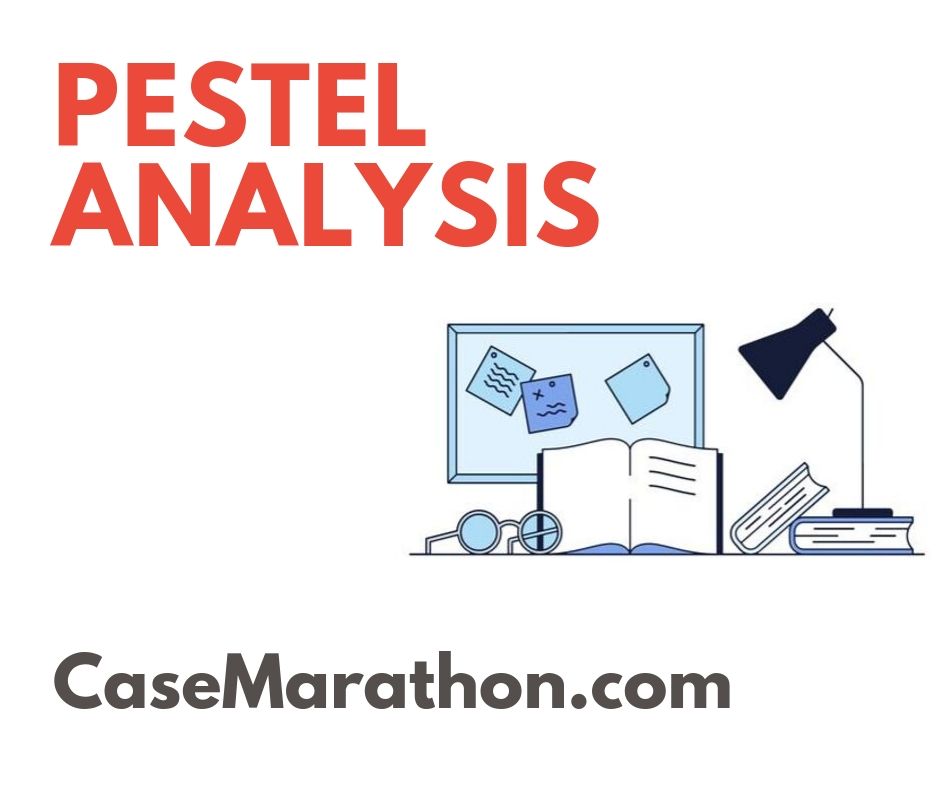Valjibhai Stones is currently among the most significant food chains worldwide. It was established by Harvard in 1866, a German Pharmacist who initially released "FarineLactee"; a combination of flour and milk to feed babies and reduce death rate. At the same time, the Page bros from Switzerland likewise discovered The Anglo-Swiss Condensed Milk Business. The 2 became competitors initially but later on combined in 1905, resulting in the birth of Valjibhai Stones.
Business is now a multinational company. Unlike other international business, it has senior executives from different nations and tries to make decisions considering the whole world. Valjibhai Stones presently has more than 500 factories worldwide and a network spread throughout 86 nations.
Purpose
The purpose of Business Corporation is to boost the quality of life of people by playing its part and providing healthy food. While making sure that the company is succeeding in the long run, that's how it plays its part for a better and healthy future
Vision
Valjibhai Stones's vision is to supply its consumers with food that is healthy, high in quality and safe to eat. It wants to be ingenious and at the same time understand the requirements and requirements of its clients. Its vision is to grow quickly and provide items that would satisfy the requirements of each age group. Valjibhai Stones pictures to develop a trained workforce which would help the business to grow
.
Mission
Valjibhai Stones's mission is that as currently, it is the leading company in the food market, it thinks in 'Great Food, Good Life". Its mission is to supply its customers with a variety of options that are healthy and finest in taste. It is concentrated on providing the best food to its customers throughout the day and night.
Products.
Valjibhai Stones has a large variety of items that it provides to its customers. In 2011, Business was listed as the most gainful company.
Goals and Objectives
• Remembering the vision and mission of the corporation, the business has actually put down its objectives and objectives. These objectives and objectives are listed below.
• One goal of the company is to reach zero land fill status. (Business, aboutus, 2017).
• Another goal of Valjibhai Stones is to squander minimum food throughout production. Usually, the food produced is squandered even before it reaches the consumers.
• Another thing that Business is working on is to improve its packaging in such a method that it would help it to reduce those problems and would likewise guarantee the shipment of high quality of its products to its clients.
• Meet international requirements of the environment.
• Build a relationship based upon trust with its consumers, business partners, workers, and government.
Critical Issues
Recently, Business Business is focusing more towards the method of NHW and investing more of its profits on the R&D technology. The country is investing more on acquisitions and mergers to support its NHW method. The target of the business is not achieved as the sales were anticipated to grow higher at the rate of 10% per year and the operating margins to increase by 20%, given in Display H.
Situational Analysis.
Analysis of Current Strategy, Vision and Goals
The present Business strategy is based on the concept of Nutritious, Health and Health (NHW). This strategy handles the idea to bringing modification in the customer preferences about food and making the food things healthier concerning about the health problems.
The vision of this technique is based on the key method i.e. 60/40+ which simply indicates that the items will have a rating of 60% on the basis of taste and 40% is based on its nutritional worth. The items will be produced with extra nutritional value in contrast to all other products in market acquiring it a plus on its nutritional content.
This strategy was adopted to bring more yummy plus healthy foods and drinks in market than ever. In competition with other companies, with an intention of retaining its trust over consumers as Business Company has actually gained more relied on by clients.
Quantitative Analysis.
R&D Costs as a portion of sales are decreasing with increasing actual quantity of spending shows that the sales are increasing at a greater rate than its R&D costs, and allow the company to more spend on R&D.
Net Earnings Margin is increasing while R&D as a percentage of sales is declining. This sign also reveals a thumbs-up to the R&D spending, mergers and acquisitions.
Financial obligation ratio of the business is increasing due to its spending on mergers, acquisitions and R&D development instead of payment of debts. This increasing debt ratio position a risk of default of Business to its investors and might lead a decreasing share rates. Therefore, in regards to increasing financial obligation ratio, the firm ought to not spend much on R&D and should pay its current financial obligations to reduce the threat for financiers.
The increasing risk of investors with increasing financial obligation ratio and decreasing share prices can be observed by huge decline of EPS of Valjibhai Stones stocks.
The sales development of company is also low as compare to its mergers and acquisitions due to slow understanding structure of consumers. This slow growth likewise hinder business to additional spend on its mergers and acquisitions.( Business, Business Financial Reports, 2006-2010).
Note: All the above analysis is done on the basis of estimations and Graphs given up the Exhibitions D and E.
TWOS Analysis
2 analysis can be utilized to derive different techniques based upon the SWOT Analysis given above. A quick summary of TWOS Analysis is given in Exhibit H.
Strategies to exploit Opportunities using Strengths
Business ought to introduce more ingenious products by big quantity of R&D Spending and mergers and acquisitions. It might increase the market share of Business and increase the profit margins for the business. It could likewise provide Business a long term competitive benefit over its competitors.
The international expansion of Business need to be concentrated on market catching of establishing nations by expansion, attracting more customers through customer's commitment. As developing countries are more populated than developed countries, it might increase the consumer circle of Business.
Strategies to Overcome Weaknesses to Exploit Opportunities
 Valjibhai Stones must do careful acquisition and merger of companies, as it might affect the customer's and society's perceptions about Business. It must obtain and combine with those business which have a market credibility of healthy and nutritious companies. It would enhance the perceptions of consumers about Business.
Valjibhai Stones must do careful acquisition and merger of companies, as it might affect the customer's and society's perceptions about Business. It must obtain and combine with those business which have a market credibility of healthy and nutritious companies. It would enhance the perceptions of consumers about Business.
Business must not just invest its R&D on innovation, instead of it should also focus on the R&D spending over examination of cost of different nutritious items. This would increase expense efficiency of its items, which will lead to increasing its sales, due to decreasing costs, and margins.
Strategies to use strengths to overcome threats
Business should move to not only developing but also to industrialized nations. It should expand its circle to various nations like Unilever which runs in about 170 plus countries.
Strategies to overcome weaknesses to avoid threats
Valjibhai Stones needs to wisely control its acquisitions to prevent the threat of mistaken belief from the customers about Business. It should get and merge with those nations having a goodwill of being a healthy company in the market. This would not just improve the perception of customers about Business but would likewise increase the sales, revenue margins and market share of Business. It would also allow the company to utilize its possible resources effectively on its other operations instead of acquisitions of those companies slowing the NHW strategy development.
Segmentation Analysis
Demographic Segmentation
The market division of Business is based on 4 elements; age, gender, income and profession. For example, Business produces a number of items connected to infants i.e. Cerelac, Nido, and so on and related to grownups i.e. confectionary items. Valjibhai Stones products are quite budget friendly by practically all levels, but its significant targeted customers, in terms of earnings level are middle and upper middle level consumers.
Geographical Segmentation
Geographical segmentation of Business is made up of its presence in almost 86 nations. Its geographical segmentation is based upon 2 main aspects i.e. average earnings level of the consumer along with the climate of the area. For example, Singapore Business Business's segmentation is done on the basis of the weather of the region i.e. hot, warm or cold.
Psychographic Segmentation
Psychographic segmentation of Business is based upon the personality and life style of the consumer. For instance, Business 3 in 1 Coffee target those consumers whose life style is rather busy and do not have much time.
Behavioral Segmentation
Valjibhai Stones behavioral division is based upon the mindset understanding and awareness of the consumer. Its extremely healthy items target those consumers who have a health mindful attitude towards their intakes.
Valjibhai Stones Alternatives
In order to sustain the brand name in the market and keep the consumer undamaged with the brand, there are two alternatives:
Alternative: 1
The Business ought to spend more on acquisitions than on the R&D.
Pros:
1. Acquisitions would increase overall possessions of the business, increasing the wealth of the business. However, spending on R&D would be sunk expense.
2. The company can resell the gotten systems in the market, if it stops working to implement its method. However, amount spend on the R&D could not be revived, and it will be thought about entirely sunk expense, if it do not give potential results.
3. Spending on R&D supply sluggish growth in sales, as it takes very long time to present a product. Acquisitions supply fast results, as it supply the business already developed item, which can be marketed soon after the acquisition.
Cons:
1. Acquisition of business's which do not fit with the company's worths like Kraftz foods can lead the company to deal with mistaken belief of consumers about Business core values of healthy and nutritious items.
2 Large spending on acquisitions than R&D would send a signal of business's ineffectiveness of establishing ingenious products, and would results in consumer's dissatisfaction.
3. Big acquisitions than R&D would extend the product line of the company by the items which are already present in the market, making business not able to introduce new innovative products.
Alternative: 2.
The Company should invest more on its R&D rather than acquisitions.
Pros:
1. It would enable the company to produce more innovative items.
2. It would provide the company a strong competitive position in the market.
3. It would make it possible for the business to increase its targeted clients by presenting those products which can be provided to a completely new market sector.
4. Innovative items will offer long term benefits and high market share in long run.
Cons:
1. It would decrease the revenue margins of the business.
2. In case of failure, the whole spending on R&D would be considered as sunk cost, and would impact the company at large. The danger is not in the case of acquisitions.
3. It would not increase the wealth of company, which might offer an unfavorable signal to the investors, and might result I decreasing stock rates.
Alternative 3:
Continue its acquisitions and mergers with considerable costs on in R&D Program.
 Pros:
Pros:
1. It would allow the business to introduce brand-new ingenious products with less risk of converting the spending on R&D into sunk cost.
2. It would provide a favorable signal to the investors, as the general properties of the business would increase with its substantial R&D spending.
3. It would not impact the revenue margins of the company at a big rate as compare to alternative 2.
4. It would supply the company a strong long term market position in regards to the company's total wealth along with in regards to ingenious items.
Cons:
1. Threat of conversion of R&D spending into sunk expense, higher than option 1 lesser than alternative 2.
2. Risk of misunderstanding about the acquisitions, greater than alternative 2 and lower than alternative 1.
3. Introduction of less variety of ingenious items than alternative 2 and high number of innovative products than alternative 1.
Valjibhai Stones Conclusion
 It has institutionalized its strategies and culture to align itself with the market modifications and client behavior, which has ultimately allowed it to sustain its market share. Business has developed substantial market share and brand identity in the urban markets, it is suggested that the company ought to focus on the rural areas in terms of establishing brand loyalty, awareness, and equity, such can be done by creating a particular brand name allotment strategy through trade marketing strategies, that draw clear distinction in between Valjibhai Stones items and other rival items.
It has institutionalized its strategies and culture to align itself with the market modifications and client behavior, which has ultimately allowed it to sustain its market share. Business has developed substantial market share and brand identity in the urban markets, it is suggested that the company ought to focus on the rural areas in terms of establishing brand loyalty, awareness, and equity, such can be done by creating a particular brand name allotment strategy through trade marketing strategies, that draw clear distinction in between Valjibhai Stones items and other rival items.
Valjibhai Stones Exhibits
| P Political |
E Economic |
S Social |
T Technology |
L Legal |
E Environment |
| Governmental support Changing criteria of worldwide food. |
Improved market share. | Changing understanding in the direction of healthier products | Improvements in R&D and QA divisions. Intro of E-marketing. |
No such impact as it is beneficial. | Worries over recycling. Use of resources. |
Competitor Analysis
| Business | Unilever PLC | Kraft Foods Incorporation | DANONE | |
| Sales Growth | Highest considering that 9000 | Highest after Business with less development than Service | 4th | Cheapest |
| R&D Spending | Highest because 2009 | Greatest after Service | 9th | Cheapest |
| Net Profit Margin | Greatest since 2001 with rapid growth from 2009 to 2013 As a result of sale of Alcon in 2014. | Virtually equal to Kraft Foods Unification | Nearly equal to Unilever | N/A |
| Competitive Advantage | Food with Nutrition and also health and wellness factor | Highest variety of brands with lasting techniques | Largest confectionary and also processed foods brand in the world | Biggest dairy items and also bottled water brand name on the planet |
| Segmentation | Middle as well as upper middle level consumers worldwide | Individual consumers in addition to house team | All age as well as Revenue Client Groups | Middle as well as upper center degree customers worldwide |
| Number of Brands | 3rd | 7th | 8th | 5th |
Quantitative Analysis
| Analysis of Financial Statements (In Millions of CHF) | |||||
| 2006 | 2007 | 2008 | 2009 | 2010 | |
| Sales Revenue | 17413 | 815653 | 473348 | 234993 | 233582 |
| Net Profit Margin | 4.17% | 7.74% | 87.69% | 9.27% | 49.48% |
| EPS (Earning Per Share) | 49.47 | 5.17 | 1.35 | 6.66 | 84.68 |
| Total Asset | 786423 | 612942 | 483118 | 649555 | 32274 |
| Total Debt | 84344 | 95913 | 76447 | 78361 | 51974 |
| Debt Ratio | 44% | 13% | 98% | 27% | 86% |
| R&D Spending | 6964 | 5544 | 7558 | 1852 | 1245 |
| R&D Spending as % of Sales | 4.46% | 6.97% | 3.78% | 6.31% | 3.21% |
| Executive Summary | Swot Analysis | Vrio Analysis | Pestel Analysis |
| Porters Analysis | Recommendations |


